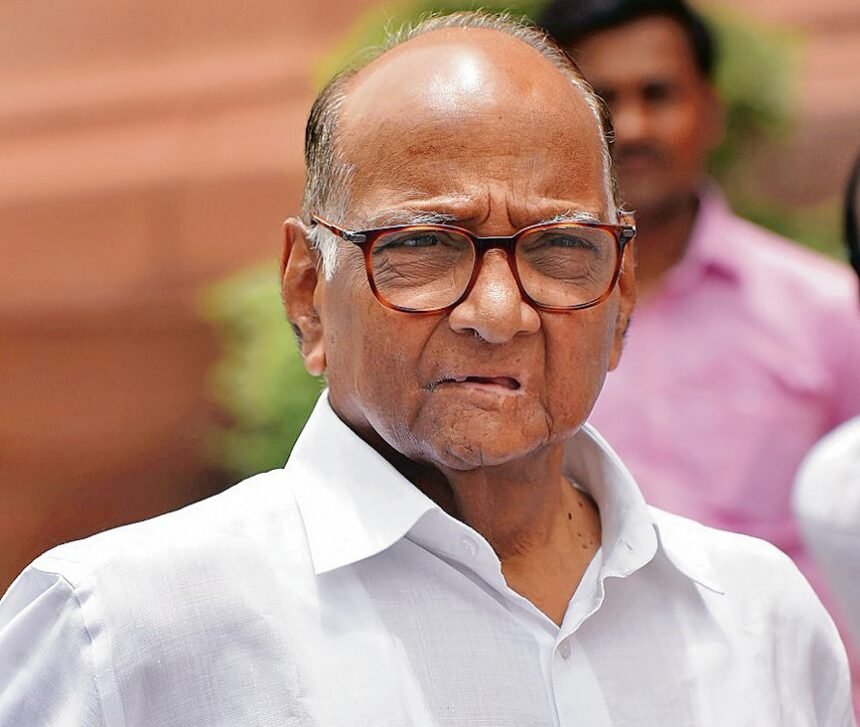On Tuesday, May 2, chaos erupted during the launch of Sharad Pawar’s autobiography in Mumbai after the veteran politician announced that he was stepping down as the president of the Nationalist Congress Party (NCP). Pawar’s announcement came as a shock to many party members, who responded by raising slogans against his exit and urging him to withdraw his decision. Some leaders were even seen in tears on stage.
Pawar, who has three years left in his tenure in the Rajya Sabha, stated that he would not contest elections in the future and would focus on issues related to the state and the country. He also announced that a committee of senior NCP leaders would decide on the party’s future course of action.
The news of Pawar’s resignation has sent shockwaves through the NCP and the wider political community. The veteran politician is widely regarded as one of the most influential figures in Maharashtra politics, having served as Chief Minister of the state on three occasions. He is also seen as a key player in national politics and has been instrumental in the formation of several governments at the center.
Pawar’s decision to step down as NCP chief is likely to have far-reaching implications for the party, which has been grappling with internal dissent and a lack of direction in recent years. The party leadership will now need to find a way to unite its factions and chart a new course in the post-Pawar era.
Overall, the resignation of Sharad Pawar is a significant development in Maharashtra politics and is likely to have a ripple effect on the national political landscape. As the NCP struggles to find its footing in the post-Pawar era, it remains to be seen how the party will navigate the challenges ahead.






